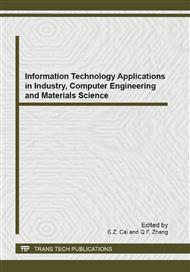p.514
p.518
p.523
p.528
p.533
p.542
p.546
p.551
p.556
A Comprehensive Test Compression Scheme Based on Precomputed Test Sets
Abstract:
To cope with increasingly rigorous challenges that large scale digital integrated circuit testing is confronted with, a comprehensive compression scheme consisting of test-bit rearrangement algorithm, run-length assignment strategy and symmetrical code is proposed. The presented test-bit rearrangement algorithm can fasten dont-care bits, 0s or 1s in every test pattern on one of its end to the greatest extent so as to lengthen end-run blocks and decrease number of short run-lengths. A dynamical dont-care assignment strategy based on run-lengths can be used to specify the remaining dont-care bits after the test-bit rearrangement, which can decrease run-length splitting and maximize length of run-lengths. The symmetrical code benefits from long run-lengths and only uses 2 4-bit short code words to identify end-run blocks almost as long as a test pattern, and hence the utilization ratio of code words can be heightened. The presented experiment results show that the proposed comprehensive scheme can obtain very higher data compression ratios than other compression ones published up to now, especially for large scale digital integrated circuits, and considerably decrease test power dissipations.
Info:
Periodical:
Pages:
533-541
Citation:
Online since:
September 2013
Authors:
Price:
Сopyright:
© 2013 Trans Tech Publications Ltd. All Rights Reserved
Share:
Citation:


